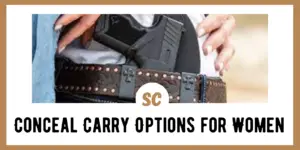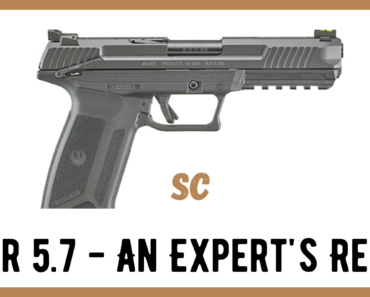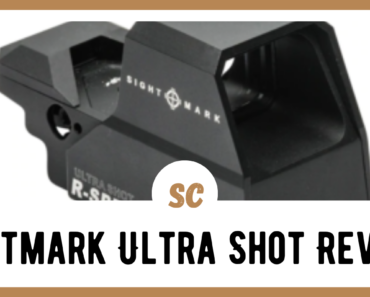For men, carrying a concealed firearm doesn’t present many problems. The most popular method of concealed carry for most men is an inside-the-waistband holster.
While this works great when wearing trousers, most women’s fashions don’t lend themselves very well to a waistband holster for concealed carry. However, there are many other options a woman can consider for concealed carry.
A little outside-of-the-box thinking is necessary when considering where and how a woman can carry concealed, even when wearing clothing that may fit close to the body or be made of clingy material that would otherwise print the outline of a firearm easily. Some of these methods may seem a little unorthodox. However, we have tried to spotlight only those concealed carry methods that are tried and proven.
Carrying concealed can be broken down into two general categories for women. On the body concealed carry is the most traditional method. Off-body carry is becoming increasingly popular with women, and there are many options for women who prefer an off-the-body carry method.
Women’s concealed carry holsters and options have become big business in recent years.
On-the-Body Carry For Women’s Concealed Carry
For ease of access, speed, and convenience, there is no other method for concealed carrying a handgun that an on-the-body carry method. The gun industry – and especially the holster manufacturers – recognize that women require slightly different considerations when electing and on-the-body form of concealed carry.
This recognition has led to some innovations in the holster market and the products available for women gun owners.
Inside the Waistband – Not Just One Option
The most common method of concealed carry for both men and women is an inside-the-waistband holster carry method. This is a convenient method for carrying concealed, even for women. New holsters are easily adaptable to even the most fashionable women’s pants.
Don’t fall into the trap of only considering an inside-the-waistband holster placed on your strong side at your three o’clock position. There are several other concealed carry options for waist carry that may be more convenient for many women.
Appendix IWB HOLSTERS as Concealed Carry Options
Rather than position your concealed carry weapon at your three o’clock position on your waistband, consider adopting the appendix position for your holster. This placement moves the holster and gun to the one o’clock position (or eleven o’clock if you are left-handed). This positioning can be an advantage for some body types.
In some cases, adopting an appendix carry position in a cross-draw configuration is more comfortable for some people. For right-handed shooters, this would put the concealed carry holster and firearm at the 11 o’clock position and vice-versa for lefties.
Kidney Inside the Waistband Carry Method
Some women may find that sliding their inside the waistband carry holster further back along the waist may be more comfortable. This position puts the holster and concealed carry firearms at the 4 to 5 o’clock position for right-handed shooters and at the 8 to 9 o’clock position for left-handed shooters.
One downside that some people who carry in the kidney position found is that sitting can be a bit uncomfortable. If you routinely spend periods sitting while you work or in a car driving, this placement of your inside-the-waistband holster may become irritating over time.
Middle of the Back Positioning
Placing your concealed carry holster in the middle of your back often seems like a perfect place for concealability. Some women and men do carry using this method. However, sitting, especially in a car seat, can be very uncomfortable. In addition, if you wear a jacket or coat as part of your concealed carry wardrobe, accessing your concealed carry weapon can be difficult.
I don’t recommend this carry position. Over time, carrying a concealed handgun in the middle of the back can lead to spinal problems and back problems associated with the gun’s location. However, under some circumstances, the 6 o’clock holster position is a viable alternative.
Other On-the-Body Concealed Carry Options
Women’s concealed carry can be challenging and often needs to be rethought from the standpoint of how and where you carry a concealed handgun. Many manufacturers and holster designers have approached this decision from a decidedly different perspective.
Belly Band Holsters for Concealed Carry Holsters
Belly bands are not new ideas for carrying pistols and other weapons. 18th-century pirates were known to wrap long swaths of cloth around their midsections and tuck various pistols and knives into the folds of the cloth for quick access. New materials and designs have updated this concept for concealed carry with great success.
New versions of the belly band holsters utilize elastic types of materials to fit around the midsection holding the holster in a variety of locations for quick and easy access. These belly band holsters are designed to keep the material from rolling or bunching as it is worn and is surprisingly comfortable. With the right clothing choices, belly band holsters can be a great solution for some people.
A belly band holster can be worn lower on the abdomen, and some are designed to fit below the waistline of your trousers. One variation of the belly band holster puts the belly above the waistline. Some of these belly band holsters are referred to as a corset holster. Some designs feature a soft holster pocket, while others incorporate Kydex holsters for a more secure fit on your concealed carry weapon.
Thigh holsters and Ankle Carry Holsters
An alternative place to carry a concealed handgun for on-body carry is in a thigh holster or an ankle holster. Thigh holsters are almost exclusive to women’s concealed carry. They can be perfect with a skirt or dress.
There are several major drawbacks to thigh holsters. Drawing from a thigh holster generally prohibits you from moving while you are drawing your weapon.
Secondly, the size of the firearm you carry is necessarily limited to small guns in the compact and micro-compact categories.
Ankle carry has been a popular method with some people, especially for a backup weapon. Ankle holsters have the same drawbacks as thigh holsters.
In addition, some people find that getting the holster tight enough around their leg or ankle to be secure becomes painful the longer the holster is worn.
Bra Holsters
The appearance of the small compact and micro-compact pistols on the market inspired at least one forward-thinking manufacturer to produce a holster for concealed carry that is specific to women’s concealed carry.
The bra holster attaches to the center of a woman’s bra and holds the firearm inverted with the grip pointing down.
This method is considered a deep concealment technique and does not allow quick or easy access to the weapon if needed.
Body size and type are also a consideration for wearing a bra carry holster.
Some women may find it difficult or uncomfortable to carry even a small firearm in this position. Body shape can also factor into the ease with which bra holsters can be worn.
T-Shirt or Vest Holsters
Specially made t-shirts or undervests with built-in holster pockets are popular with some women and men.
These types of concealed carry garments usually have underarm pockets into which a firearm can be slipped. The off-side pocket is useful for carrying extra magazines. Access to your firearm when wearing a t-shirt or undervest holster can be difficult, especially in public places.
Another consideration if you opt for an undervest or t-shirt holster garment is the time of year and the weather. By and large, these types of concealment garments tend to be hot and may not be suitable in very hot climates or during certain periods of the year.
Leggings Holsters
The popularity of leggings for everyday women’s wear has prompted several clothing designers to incorporate concealed carry holsters on leggings or yoga pants for women. Some have even adapted shorts and skirts to this style of holster design.
These designs eliminate the need for belt loops, belts and straps to carry the load of the holster. Instead of belt loops and belts, the weave of the fabric and the stretch materials are used to support the concealed carry holsters.
Typically, small frame compact pistols or revolvers are the best choices for this kind of concealed wear.
Pocket Holsters
Pocket holsters a usually considered an on-body style of concealed carry. A pocket holster is more of a gun glove than a true holster. The main purpose of a pocket holster is to protect the trigger of the pistol from inadvertent snags that can cause a pistol discharge.
The pocket holster should cover the entire trigger guard area and the firearm’s muzzle to protect against the intrusion of foreign objects.
You should never pocket carry any kind of firearm without a pocket holster to protect the trigger guard of the weapon. Car keys and other objects can easily engage the trigger, and you may accidentally fire the weapon when you remove the pistol from your pocket.
Note: A pocket holster should be used even if you purse carry your pistol without a specially designed concealed carry purse.
The Shoulder Holster Option
We are all familiar with the traditional shoulder holster rig from TV and movies.
These venerable concealed carry holsters remain a much-used option among some people. Typically, a good holster set up as a shoulder rig is more expensive than an IWB holster or an OWB holster. However, if you routinely wear a suit coat or other outer garment, shoulder holsters can be a comfortable and versatile way to carry concealed.
Many women regularly wear a cover garment that can easily conceal a shoulder holster rig, making this type of on-the-body holster a good option.
Outside-the-Waistband Holster Options
The traditional outside-the-waistband holster is another body carry method that is preferred by some women.
It is a bit more difficult to conceal carry a pistol while wearing an OWB holster, but it is doable. Most outside waist band holsters require a belt to support the holster.
Typically, OWB carry is preferred in open-carry situations where concealment is not an issue. One advantage of OWB holster carry is getting a firing grip on your weapon before it is unholstered. Getting such a grip from an IWB holster is next to impossible in most instances.
Off-Body Carry Options
Off-body carry methods are much the same for women as they are for men. Almost all involve a bag or a case where the concealed carry weapon is stowed.
For men, this usually involves a briefcase or a day bag. The obvious choice for women is a purse. However, simply shoving a concealed carry pistol into a purse is not a recommended practice.
A well-designed concealed carry purse will have a separate, easily accessible pocket with a built-in holster. The holster will hold the firearm securely in place for a quick and proper grip when needed.
The separate pocket keeps other items from becoming entangled with the pistol, preventing accidental discharges that might otherwise occur.
Many manufacturers now have concealed carry purses in various styles and sizes to fit any occasion or need. These purses have various holster options to fit almost any size pistol, making finding the right holster for your firearm much easier. You can often change out the holsters so you can keep several holsters if you routinely carry different guns on different occasions. Many concealed carry purses also have built-in spare magazine carriers.
Choosing your Concealed Carry Method
It should be obvious that no single concealed carry holster or method will meet the needs of every situation. More than likely, you will end up with several styles and types of holsters to meet your concealed carry needs.
Don’t fall into the trap of thinking one holster will do all of your concealed carry jobs. Fit the holster to the situation and to your firearms to ensure comfort, safety, and security.











































